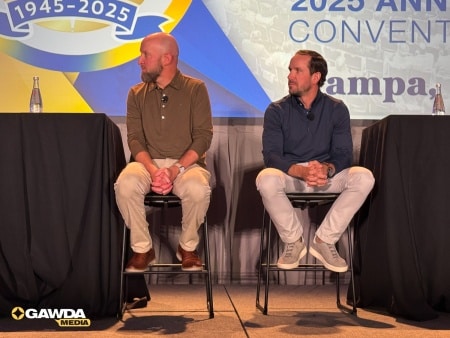PHMSA to Hold Public Meeting on Hazmat Registration Fees. The Pipeline and Hazardous Materials Safety Administration will hold a virtual public meeting on June 28, 2023 to solicit input on potential adjustments to its hazardous materials registration and fee assessment program.
The fees, which are currently $250 for small businesses and $2,575 for large businesses (plus a $25 administrative fee for each), raise revenues that are used to fund hazmat emergency preparedness, response and related programs. The amount of revenue that may be raised is capped by statute. The annual fees may be adjusted if the revenue exceeds or falls short of the targeted amount.
In the Infrastructure Improvement and Jobs Act of 2021, Congress increased the targeted revenue for the emergency preparedness grant fund from about $28.3 million to the new level of about $46.8 million. But Congress did not increase the caps on an individual registrant’s fees from the current $3,000.
PHMSA published an Advance Notice of Proposed Rulemaking to solicit feedback on potential adjustments to its hazardous materials registration fees. According to PHMSA, increasing the fees or adding other entities among those required to register may be necessary to fund PHMSA’s national emergency preparedness grant programs at the newly authorized level in accordance with the Infrastructure Investment and Jobs Act of 2021. In the ANPRM, PHMSA presented a number of options for consideration.
If registration fees remain at a maximum $3,000 per year, PHMSA is considering the following options for comment:
- Keep the existing registration requirements (see 49 CFR 107.601) and raise the registration fee for large businesses from $2,575 to $3,000.
- Keep the existing registration requirements and apply a nominal fee (e.g., $25) for each facility or geographic location from which a registered person (i.e., a company) offers for transportation, or transports, certain hazardous materials.
- Modify assignment of the registration fee and/or amount based on the commensurate hazard posed (e.g., shipping Packing Group I materials vs. Packing Group III materials) or risk profile (e.g., frequent vs. infrequent shipments).
- Expand the registration requirements. For example, certain hazardous materials are not subject to placarding when shipped domestically. Therefore, a person who offers for transportation, or transports, these materials is generally exempt from registration, but these requirements could be expanded with appropriate risk-based justifications.
- Expand the registration fee requirements to include certain persons who acquire approvals or special permits from PHMSA that otherwise are not subject to registration, but which should be based on a public risk-based justification.
If Congress allows an increase in the maximum fee, PHMSA is considering the following options for comment:
- Maintain the current maximum registration fees and create an upper tier of a higher fee for a certain category of very large businesses. If this approach is preferred, how should PHMSA define a “very large business?” Specifically, what risk factors should go into determining a very large business classification to better account for market-based risks to the public as well as equity factors between applicants.
- Change the registration requirements to reduce the overall number of registrants.
- Keep the existing registration requirements and raise the registration fee for large businesses from $2,575 to a dollar value below the Congressionally authorized maximum fee (e.g., if the maximum allowed were increased from $3,000 to $5,000).
- Raise fees for specific business types, classes of material, or commodities (e.g., poisonous by inhalation material), which are considered extremely high risk.




